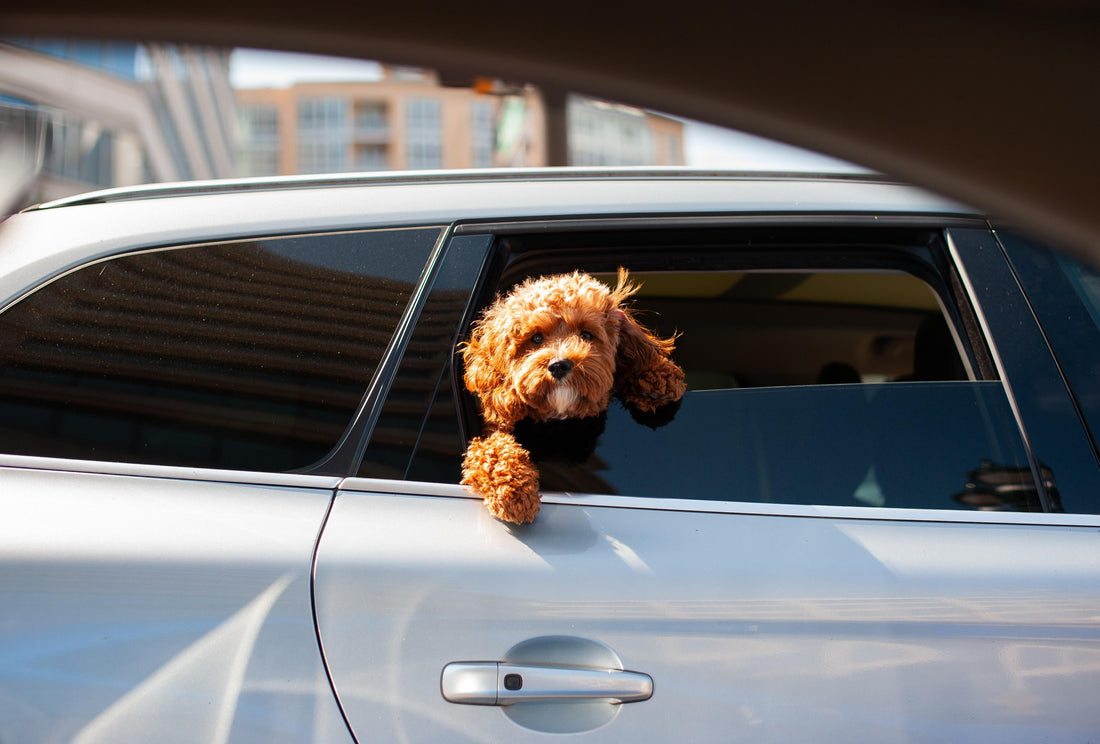
Keeping Your Furry Friend Safe on the Road: Essential Pet Travel Tips
Share
As pet owners, we cherish the moments when we can bring our beloved companions along on our adventures. Whether it's a road trip to visit family, a weekend getaway, or a daily commute, having our furry friends by our side can make the journey even more enjoyable. However, ensuring their safety during travel is of utmost importance. In this blog post, we'll explore essential pet travel tips to help you keep your furry friend secure and comfortable on the road.
Securing Your Pet in the Car
One of the most crucial aspects of pet travel safety is properly securing your pet in the vehicle. Loose pets in a moving car can not only be a distraction to the driver but also pose a serious risk in the event of an accident. Invest in a high-quality pet seatbelt, harness, or carrier to keep your pet safely restrained. These devices are designed to protect your pet in the event of a collision, preventing them from being thrown around or escaping the vehicle.
When choosing a pet restraint system, consider the size and weight of your pet, as well as the specific features that will work best for your needs. Look for products that are crash-tested and approved for use in vehicles. Proper installation and fit are also essential, so be sure to follow the manufacturer's instructions carefully.
Crate Training for Safer Travel
In addition to seatbelts and harnesses, crate training can be an excellent way to keep your pet secure during car rides. Crates provide a familiar and comfortable space for your pet, while also protecting them in the event of an accident. When selecting a crate, choose one that is large enough for your pet to stand up, turn around, and lie down comfortably, but not so large that they can be tossed around inside.
Introduce your pet to the crate gradually, using positive reinforcement and treats to help them associate it with a safe and pleasant experience. This will make them more likely to willingly enter the crate when it's time to hit the road.
Preventing Motion Sickness and Anxiety
Some pets, just like humans, can experience motion sickness or anxiety during travel. This can lead to vomiting, excessive panting, or even destructive behavior. To help alleviate these issues, consider the following tips:
Acclimate Your Pet to the Car
Start by taking your pet on short, frequent car rides to help them get used to the motion and sounds of the vehicle. Gradually increase the duration of these trips, and be sure to provide plenty of praise and treats to create a positive association.
Provide Comfort and Distraction
Pack your pet's favorite toys, blankets, or treats to help them feel more at ease during the journey. You can also try using pheromone-based calming products, such as diffusers or sprays, to help reduce stress and anxiety.
Consider Medication
If your pet's motion sickness or anxiety is severe, consult your veterinarian about the possibility of medication to help manage their symptoms. Your vet can recommend safe and effective options to keep your pet comfortable during travel.
Keeping Your Pet Hydrated and Comfortable
Ensuring your pet's physical comfort is also crucial for a safe and enjoyable travel experience. Here are some tips to keep your furry friend hydrated and comfortable on the road:
Bring Plenty of Water and Snacks
Pack a travel-friendly water bowl and plenty of fresh water to keep your pet hydrated. You may also want to bring their favorite snacks or small meals to feed them during the trip.
Take Frequent Breaks
Plan to stop every few hours to allow your pet to stretch their legs, use the restroom, and have a drink of water. This will not only keep them comfortable but also help prevent any accidents in the car.
Maintain a Comfortable Temperature
Make sure the temperature in the car is comfortable for your pet, and avoid leaving them in the vehicle for extended periods, especially in extreme heat or cold.
Preparing for Emergencies
Despite our best efforts, unexpected situations can arise during travel. It's essential to be prepared for potential emergencies:
Carry Identification and Medical Records
Keep your pet's identification tags, microchip information, and a copy of their medical records with you at all times. This will help ensure your pet can be quickly reunited with you if they become lost, and provide important medical information to veterinary professionals in case of an emergency.
Know Where to Find Veterinary Care
Research veterinary clinics and emergency animal hospitals along your travel route, and keep their contact information handy. This will allow you to quickly locate and access care if your pet requires medical attention.
By following these essential pet travel tips, you can help ensure your furry friend's safety and comfort on the road. Remember, the key to a successful and stress-free journey is preparation, vigilance, and prioritizing your pet's well-being. With a little planning and the right precautions, you and your beloved companion can enjoy the adventure of travel together.
